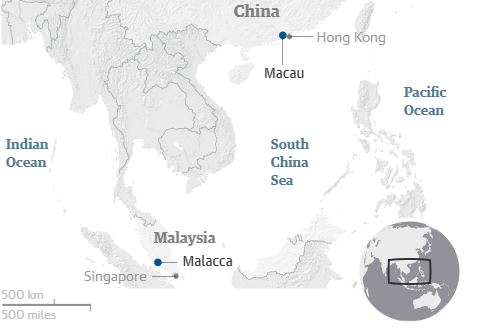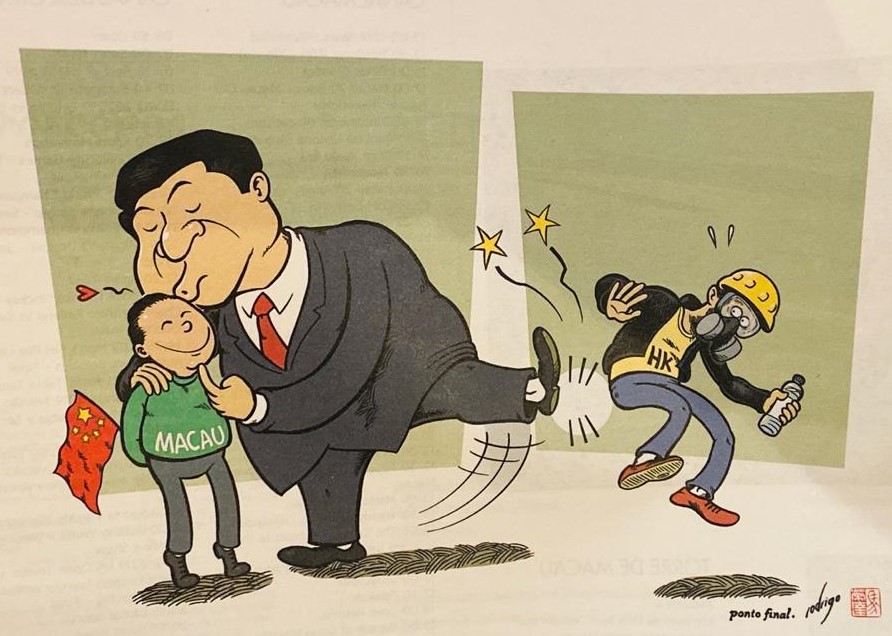
It’s a linguist’s nightmare that an endangered language is dead after the last native speaker of the language passes on. Political and economic marginalization accounts for most of the world’s language endangerment, in particular, in Macau, the former Portuguese colony.
After the Macau handover in 1999 to China, Mandarin Chinese speakers in Macau outnumbered Portuguese native speakers, although Cantonese is still the predominant language in the enclave. According to The Guardian, in 2000, the number of people who speak Patuá—a blend of Portuguese and Cantonese—was down to just 50 speakers worldwide. A year prior, UNESCO classified Patuá as a “critically endangered” language.
Despite the fact that Macau set Chinese and Portuguese as official languages after 1999 handover, the Portuguese-speaking residents of Macau are declining—older speakers pass away and young people are not interested in learning the out-of-fashion Macanese Portuguese. It was estimated in 2017 that only 0.6 percent of households in Macau speak Portuguese as their first language.
Growing up in Cantonese-speaking Guangzhou, I’ve witnessed how Cantonese is marginalized as new Mandarin-speaking domestic immigrants flooded in the city. As I described in my book Golden Orchid, the immigrants contributed their labor to the modernized urban development; and yet, instead of learning Cantonese, they speak their own dialects; instead of learning about the history of Cantonese culture, they bring their own to the metropolis. For instance, retired Mandarin speakers gather in the open air to dance with the company of loud music.
If the new Cantonese residents pay little attention to the Cantonese history, the new immigrants in Macau cannot be oblivious of the European architecture in the city. The road names and the local cuisine are all associated with Portuguese. I’m a strong believer that knowing a language is the first step in embracing its culture.
But now, Beijing sees Macau as a door to the lusophone world, such as Portugal, Brazil, Angola, Mozambique and East Timor. The establishment of the BRIC economies speaks for itself. As the “Big Four” member states, Brazil and China have built a stronger-than-ever economic tie. As a result, students in the casino-dominated “Las Vegas of the East” see studying Portuguese as a shrewd career move. The territory’s government also pledged to make the city a hub for Portuguese learning. There is an increasing number of Chinese people in Macau—residents and mainland students—studying Portuguese as a second or third language. The number of native Portuguese speakers is also growing in the enclave to set up businesses or pursue careers.
As a polyglot, I cherish every language that survives regardless of the influence or intervention from a government or a ruling party. If only Beijing could see the importance of dialects in the mainland. If only the Communist leaders could embrace language diversity instead of implementing nationwide Standard Mandarin through coercive measures. If only today’s Portuguese renaissance in Macau could last for generations.
This week Chinese president Xi Jinping will visit Macau to celebrate the 20th anniversary of the handover. His uplifting speech in Mandarin Chinese will no doubt increase the confidence of the Portuguese speakers in the casino hub. Will his speech also strengthen investors’ faith in China’s goal of turning the enclave a financial hub as a backstop to the neighboring untamed Hong Kong? Let’s wait and see.

